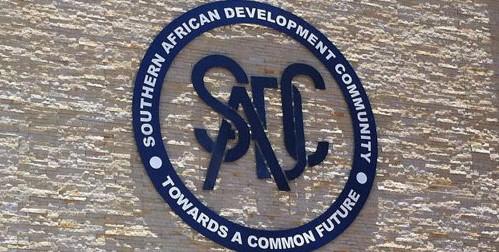News / National
SADC advances plans to operationalise regional development fund
21 Dec 2024 at 08:11hrs |
1 Views

The Southern African Development Community (SADC) is making significant strides towards operationalising its Regional Development Fund (RDF), a financing mechanism aimed at fostering sustained economic growth and development across the region.
This initiative was discussed during a recent meeting of the SADC Committee of Ministers of Finance and Investment, chaired by Zimbabwe's Finance, Economic Development and Investment Promotion Minister, Professor Mthuli Ncube.
The African Development Bank (AfDB) has provided critical insights into how the regional bloc can effectively bring the RDF into operation. According to the SADC Secretariat, the bank offered recommendations outlined in a revised RDF Discussion Paper, which aligns with the 2016 Agreement on the Fund's operationalisation.
"In his opening remarks, Honourable Prof Mthuli Ncube stated that the Senior Officials considered the detailed presentation from the African Development Bank on the revised RDF Discussion Paper. The options and recommendations set out in the paper are in line with the 2016 Agreement," the SADC Secretariat said.
SADC Executive Secretary Elias Magosi emphasized the need for a concessional funding mechanism, such as a concessional window from the AfDB, to allow low-income member states to access resources for the RDF.
"The SADC Treaty provides for a special Regional Development Fund to create a Regional Financing Mechanism for Economic Development and Sustainable Growth," Mr. Magosi stated. He acknowledged fiscal pressures as a significant challenge for member states in meeting their capitalisation commitments for the Fund.
Magosi urged member states to explore mechanisms outlined in the AfDB's Discussion Paper to expedite both membership and capitalisation of the RDF.
The success of similar initiatives, such as the African Development Fund (ADF), serves as an example for SADC. The ADF has provided financing to close financial gaps, such as funding equity contributions for the African Trade and Investment Development Insurance Agency (ATIDI).
"In 2015, the ADF provided UA 19.87 million to support Benin, Ethiopia, and Côte d'Ivoire in their contributions to ATIDI. This enhanced insurance coverage for private sector development across Africa. Similarly, in 2018, Nigeria received UA 10.21 million to invest in ATIDI," the SADC Secretariat noted.
Magosi expressed gratitude to the AfDB for its unwavering support in helping SADC operationalise the RDF, stressing the urgency of the initiative.
"While the AfDB has committed resources and support, member states must do their part to ensure the exercise is successfully concluded," he said.
With the operationalisation of the RDF, SADC aims to bolster regional development and economic sustainability, fostering deeper integration and resilience among its member states.
This initiative was discussed during a recent meeting of the SADC Committee of Ministers of Finance and Investment, chaired by Zimbabwe's Finance, Economic Development and Investment Promotion Minister, Professor Mthuli Ncube.
The African Development Bank (AfDB) has provided critical insights into how the regional bloc can effectively bring the RDF into operation. According to the SADC Secretariat, the bank offered recommendations outlined in a revised RDF Discussion Paper, which aligns with the 2016 Agreement on the Fund's operationalisation.
"In his opening remarks, Honourable Prof Mthuli Ncube stated that the Senior Officials considered the detailed presentation from the African Development Bank on the revised RDF Discussion Paper. The options and recommendations set out in the paper are in line with the 2016 Agreement," the SADC Secretariat said.
SADC Executive Secretary Elias Magosi emphasized the need for a concessional funding mechanism, such as a concessional window from the AfDB, to allow low-income member states to access resources for the RDF.
"The SADC Treaty provides for a special Regional Development Fund to create a Regional Financing Mechanism for Economic Development and Sustainable Growth," Mr. Magosi stated. He acknowledged fiscal pressures as a significant challenge for member states in meeting their capitalisation commitments for the Fund.
The success of similar initiatives, such as the African Development Fund (ADF), serves as an example for SADC. The ADF has provided financing to close financial gaps, such as funding equity contributions for the African Trade and Investment Development Insurance Agency (ATIDI).
"In 2015, the ADF provided UA 19.87 million to support Benin, Ethiopia, and Côte d'Ivoire in their contributions to ATIDI. This enhanced insurance coverage for private sector development across Africa. Similarly, in 2018, Nigeria received UA 10.21 million to invest in ATIDI," the SADC Secretariat noted.
Magosi expressed gratitude to the AfDB for its unwavering support in helping SADC operationalise the RDF, stressing the urgency of the initiative.
"While the AfDB has committed resources and support, member states must do their part to ensure the exercise is successfully concluded," he said.
With the operationalisation of the RDF, SADC aims to bolster regional development and economic sustainability, fostering deeper integration and resilience among its member states.
Source - the herald
Join the discussion
Loading comments…
































